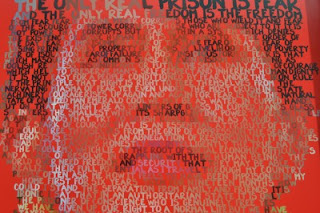[postlink]
https://burmacampaignjapanteam.blogspot.com/2012/05/thailand-two-faces.html
[/postlink]
Thailand hit the headlines twice this week. Bangkok won warm praise as host for Burma’s pro-democracy icon Aung San Suu Kyi and her first visit outside of her country in 24 years. Thousands cheered as “The Lady” toured, visiting Burmese migrant workers, listening to their stories and focusing on issues like health.
She told workers she would raise their issues with Thai authorities as well as at the upcoming International Labor Conference in Geneva.
Thailand was in part driven by self interest. With Burma opening its doors with promises of democracy, the rest of the Association of South East Asian Nations (ASEAN) is working overtime to integrate Burma with the ASEAN Economic Community that will emerge in 2015.
Thailand is also worried that Burmese migrant workers, for years a source of cheap labor, will return home. Nevertheless Suu Kyi was feted.
This was a far cry from the treatment meted out by Thailand to one of their own.The Bangkok Criminal Court found Chiranuch Premchaiporn guilty of computer crimes and sentenced her to one year in prison, reduced to eight months and suspended. Chiranuch is the website manager of the online news portal Prachatai.
Her crime was that she didn’t move fast enough to delete online comments deemed by some as insulting to the country's royalty. In other words, this was another case of lèse-majesté and a legal action seen widely as a test of freedom of expression in Thailand.
It could have been worse. Chiranuch had faced up to 20 years in prison for failing to quickly remove 10 comments others had posted on her Prachatai news website. The verdict has come shortly after the death in prison of Ampon Tangnoppakul, 61, a polite working class man who lived with his mother and suffered from mouth cancer that impaired his speech.
He was jailed for 20 years for a crime he apparently knew nothing about: four SMS messages sent to the personal secretary of former Prime Minister Abhisit Vejjajiva, deemed offensive to the monarch.
Lèse-majesté laws strictly forbid any action that could defame or insult the Thai monarchy, but critics argue they are simply used by politicians and their backers to silence their opposition. King Bhumibol Adulyadej has said he wasn’t opposed to criticism of the monarchy. No member of the royal family has ever filed a charge of lèse-majesté.
Chiranuch was arrested during a crackdown on online media initiated by Abhisit with a focus on content the government considered offensive to the monarchy. But she had thought she would be acquitted in a case that drew international attention over censorship of the Internet and the liability of a website operator for comments posted by a third party.
Thailand has endured massive political convulsions over the past six years, with Red and Yellow Shirts at times fanatical in their attempts to draw support from the broader public.
Suu Kyi’s historic visit, her first international trip since 1988, was an example of Thailand at its best and offered a breath of fresh air. But the verdict against Chiranuch will hardly rate among this country’s finer moments.
She told workers she would raise their issues with Thai authorities as well as at the upcoming International Labor Conference in Geneva.
Thailand was in part driven by self interest. With Burma opening its doors with promises of democracy, the rest of the Association of South East Asian Nations (ASEAN) is working overtime to integrate Burma with the ASEAN Economic Community that will emerge in 2015.
Thailand is also worried that Burmese migrant workers, for years a source of cheap labor, will return home. Nevertheless Suu Kyi was feted.
This was a far cry from the treatment meted out by Thailand to one of their own.The Bangkok Criminal Court found Chiranuch Premchaiporn guilty of computer crimes and sentenced her to one year in prison, reduced to eight months and suspended. Chiranuch is the website manager of the online news portal Prachatai.
Her crime was that she didn’t move fast enough to delete online comments deemed by some as insulting to the country's royalty. In other words, this was another case of lèse-majesté and a legal action seen widely as a test of freedom of expression in Thailand.
It could have been worse. Chiranuch had faced up to 20 years in prison for failing to quickly remove 10 comments others had posted on her Prachatai news website. The verdict has come shortly after the death in prison of Ampon Tangnoppakul, 61, a polite working class man who lived with his mother and suffered from mouth cancer that impaired his speech.
He was jailed for 20 years for a crime he apparently knew nothing about: four SMS messages sent to the personal secretary of former Prime Minister Abhisit Vejjajiva, deemed offensive to the monarch.
Lèse-majesté laws strictly forbid any action that could defame or insult the Thai monarchy, but critics argue they are simply used by politicians and their backers to silence their opposition. King Bhumibol Adulyadej has said he wasn’t opposed to criticism of the monarchy. No member of the royal family has ever filed a charge of lèse-majesté.
Chiranuch was arrested during a crackdown on online media initiated by Abhisit with a focus on content the government considered offensive to the monarchy. But she had thought she would be acquitted in a case that drew international attention over censorship of the Internet and the liability of a website operator for comments posted by a third party.
Thailand has endured massive political convulsions over the past six years, with Red and Yellow Shirts at times fanatical in their attempts to draw support from the broader public.
Suu Kyi’s historic visit, her first international trip since 1988, was an example of Thailand at its best and offered a breath of fresh air. But the verdict against Chiranuch will hardly rate among this country’s finer moments.
Image credit: Globalism Pictures

